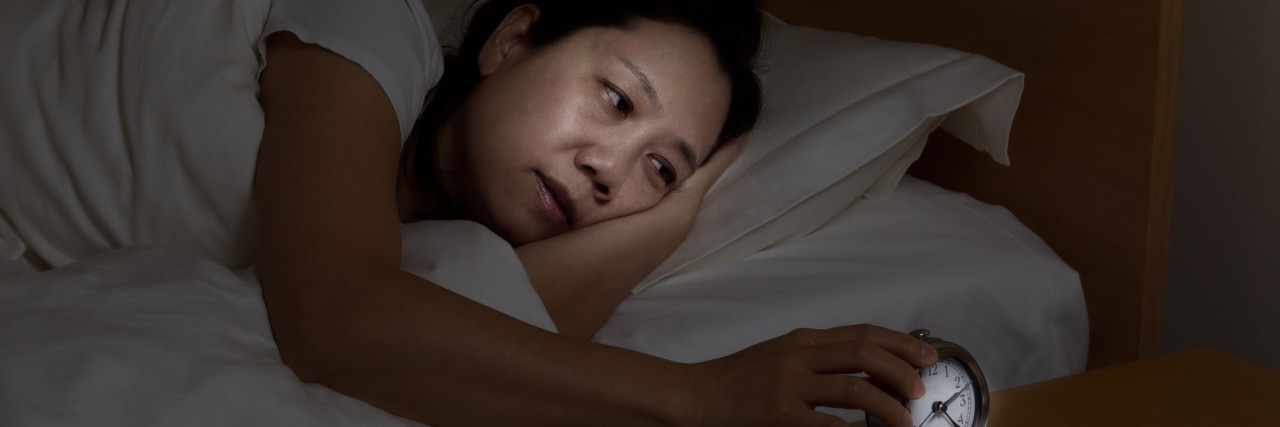One of the hardest things (let’s face it, none of it is easy, though) about having depression and anxiety together with post-traumatic stress disorder (PTSD) is that the thing I want to do the most can become one of the things I fear the deepest. Sleep. I wake up exhausted almost every morning from fighting the monsters in my dreams.
It is worth noting that not everything relates to the actual traumas I experienced, but the common theme is a feeling of fear and helplessness, doom, pain, and violence. Much of it relates to myself, but often it infects my family. These are the nightmares I fear the most — the ones where I am trying to protect my children or husband and I can’t. The dread when I wake and my husband has left for work so I cannot immediately check on him to make sure he is safe, the frantic race to my children’s rooms to make sure they are there and no one has harmed them while I slept.
The sense of fear and doom can linger all day, sometimes even longer. Even after I have seen my children and spoken to my husband, checked on them all repeatedly during the day, I obsessively worry my dream, instead of being something that had already happened, may now be a premonition of things to come. I feel the need to keep in contact with them throughout the day, as though my knowing their every move will keep them safe from harm. While I logically know it is impossible for me to keep them safe simply by knowing their whereabouts I can’t help myself.
I’ve lived with nightmares most of my life, even as a young child, prior to any major traumatic events in my life. I remember waking screaming in the night from dreams of lions tearing me to pieces. But never in a million years did I expect to experience the torment of bad dreams throughout my teen years and well into adulthood.
I remember many of my dreams in glaring clarity with exact details. Often my dreams come in series like some horrible TV show, starting again with a new episode each time I fall asleep.
People expect children to have nightmares; they are almost a rite of passage, but when as a 30-something-year-old mentions she has nightmares on a regular basis, people react with scorn or humor. It seems it is viewed as weird, and silly, and childish. To be honest, I even struggle personally with these feelings. It feels to me that I am foolish and weak for letting my mind run to such horrible fantasies when my eyes close.
Supposedly is not uncommon for those who have experienced trauma or displacement to have nightmares — men, women, children, young or old. There is both comfort and sadness in knowing that. Comfort because I am not alone, not “weird.” Sadness because it hurts my heart to know others have to experience this too. I wonder if they all have come to dread slumber, something that should be restful and rejuvenating. Waking from a nightmare, the last thing you feel is rested or relaxed. Often I wake to find I’ve bitten the inside of my mouth so badly that it’s bleeding and scarred. My neck, shoulders and joints are painful and tense. My head is throbbing, my heart is racing, and I’m drenched in sweat. The physical pain from this tension only feeds the bad dreams too, often having its own place in the personal horror of sleep.
I hope to one day heal fully from this particular aspect of my illness. There are certainly times when I’ve had relief from them for a few days or even a couple of weeks since starting to receive treatment from an experienced psychiatrist, so there must be hope that those weeks can possibly be stretched into months and maybe even years. For as long as I keep going, there is hope.
Thinkstock photo by tab1962

